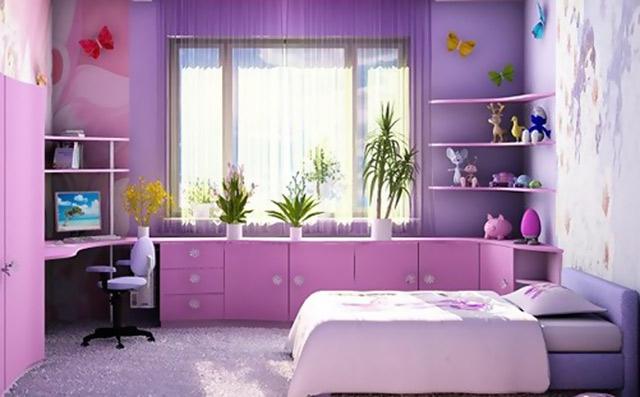The aim of the lesson: Revising grammar. Reading, speaking and writing about
crowding.
Developing pupils` abilities in speaking, reading, writing.
Bringing up to keep nature clean.
Visual aids: cards, pictures, grammar materials.
Procedure of the lesson.
I Organization moment.
Teacher: Good morning pupils. I am very glad to see you here.
II Checking the home task.
Review.
III Grammar. Some and any.
Some болымды с?йлемдерде ?олданылады.
There are some apples on the table.
Any болымсыз ж?не с?раулы с?йлемдерде ?олданылады.
Is there any water in the glass?
I haven`t got any sisters and brothers.
Some с?раулы с?йлемдерде, біреуден бір н?рсе с?ра?анда немесе біреуге бір н?рсе ?сын?анда ?олданылады.
Can I have some tea?
Would you like some coffee?
Past Simple ша?ыны? болымсыз т?рі did ж?не болымсыз с?з not ар?ылы (?ыс?аша didn`t) жасалады.
Example: He watched TV.
He didn`t watch TV.
I
You
He/ She/ It didn`t walk yesterday.
We
They
IV Doing exercises.
Ex- 1. Look at the picture for 2 minutes. Then close your book. Work with your partner and make as many sentences as you can with some, any.
There are some toys on the shelf. There are some bedside tables in the bed room. There are some plants on the bedside tables. There are some butterflies on the wall. There are some books on the shelf. There aren`t any books on the desk. There aren`t any dresses on the bed. There aren`t any newspapers on the desk. There aren`t any pencils on the bed (desk).There aren`t any musical instruments. There aren`t any toys on the bed.
Ex- 2. How many words can you add to these lists?
bedroom milk water juice
kitchen dining room
bathroom living room coffee tea
hall
English
chair table
Maths Art
desk bed cupboard History Kazakh Music 2592
Ex- 3. Making negatives. What people didn`t do 500 years ago? Discuss it with your partner. Write some sentences in your notebook.
Example: They didn`t have passport.
They didn`t drive a car. They didn`t go to school. They didn`t to listen to music, to watch TV. They didn`t have a television (a computer, a phone, a radio). They didn`t go to the shop. They didn`t have a fridge, a microwave oven (микротол?ынды пеш) [`maikr??, weiv]. They didn`t write.
V New words:
smell [`smel] иіскеу
traffic [`træfik] к?шедегі к?ліктер ?оз?алысы
pollution [p?`lu:??n] ластану
factory [`fækt?ri] зауыт
leave [li:v] кету, тастау
move [mu:v] к?шу
job [dз?b] ж?мыс
fuel [fju:?l] отын, жанармай
crowding [`kraudi?] лы? толы, к?п, к?пшілік
Ex- 4. Read.
Crowding
Look around you- what do you see? What do you hear? What do you smell? If you live in a city, you probably see many people. You hear the noise of traffic, and you smell the pollution from cars and factories.
We are entering a new time in the history of the world. Before this, most people were farmers. They lived in the country. Now many people are leaving the farms and moving into the cities. They are looking for jobs. The cities are growing very quickly.
Most cities are very crowded. People are driving more cars, burning more fuel, using more water, eating more food, making more rubbish. Life is becoming difficult.
VI CARDS. Read sentences. Use be going to …
to have lunch/ at 1 o`clock (I am going to have lunch at 1 o`clock. )
to cook a meal/ at 3 o`clock (Aray is going to cook a meal at 3 o`clock)
to play tennis/ at 4 o`clock (She is going to play tennis at 4 o`clock)
to watch TV/ at 6 o`clock (Zhanar is going to watch TV at 6 o`clock)
to take a shower/ at 8 o`clock (Ayganym is going to take a shower at 8 o`clock)
VII Giving the home task.
Ex- 5. Write. Choose sentences from the list below and write two separate paragraphs organizing the sentences into a clear order. The topics are: “Crowding” and “Pollution”. Each paragraph will have 6 sentences.
Write an essay (a short story) about “My town”.
VIII Marking the pupils.
- excellent
Good
satisfactory
IX Conclusion.
The lesson is over! Good-bye, pupils!




 bedroom milk water juice
bedroom milk water juice


 kitchen dining room
kitchen dining room




 English
English


 chair table
chair table 



 Maths Art
Maths Art




 - excellent
- excellent

 Good
Good
















